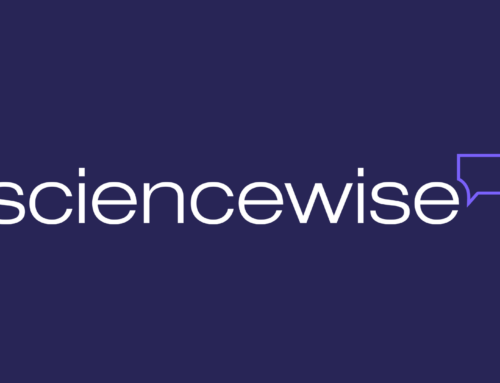Emerging technologies promise to transform our world. People will encounter them as biological, physical, digital and virtual interventions in our lives, and the impacts will be felt in almost every aspect of society. It is vital that the debates that will shape the use and governance of emerging technologies involve people who will be affected by them.
However, it can be difficult to know how and when to involve the public in decisions and discussions. This is because it is hard to predict the impact of technologies when they are several years away from widespread use and may seem abstract to the public; yet it is hard to change or challenge the use of a technology once it is embedded.
Social and ethical issues in emerging technologies
A new report commissioned by Sciencewise, and compiled by British Science Association with input from Involve UK, the National Coordinating Centre for Public Engagement, and UK Research and Innovation, considers public perspectives on five emerging technologies:
- AI and automation in the workplace
- Data-driven decision-making
- Human enhancement technologies
- Augmented and virtual reality
- New gene therapies
Given their likely impacts, we wanted to find out what is already known about public opinion towards these technologies. We analysed social intelligence sources (such as dialogues, surveys, social media, mass media, opinion polls, and social research). We aimed to identify themes, possible concerns, affected communities and gaps in our knowledge around what the public think of each emerging technology.
We found three priorities for public engagement on emerging technology to address. These priorities relate to the social and ethical themes that appeared repeatedly, regardless of which emerging technology area we were looking at.
1.Build trust in emerging technology governance: When looking at peoples’ perspectives on data-driven technologies, we found that over the last decade, people have become used to their data being collected, but still feel uninformed and unable to influence how it is used and reused. We also found that the systems for governance and use of data in public settings are not always seen as trustworthy.
Across all of the examples we looked at, people are generally in favour of systems where they can control how the technology applies to them, or can rely on an independent regulatory body to define and monitor good practices.
Therefore, public engagement could play a role in co-designing trustworthy governance systems.
2.Ensure the benefits of emerging technology are shared equitably: Across the technologies we explored, we found that certain groups, men, people in higher social grades, people with higher levels of education and younger people, for example, are more likely to have heard about the technologies and to have positive views about them, than other groups.
Effective engagement could aim to ensure that emerging technologies do not favour certain social groups, or widen inequality.
3.Protect people’s personal information, health, and wellbeing: Exploring public views on technologies such as new gene therapies, and augmented and virtual reality, for example, we found that safety and security are a major factor in shaping peoples’ perspectives, especially when the impacts of technology are uncertain.
Public engagement could help anticipate what the perceived barriers and concerns about emerging technologies are, and shape regulation that promotes safe uses.
Where next for public engagement and emerging technologies?
Understanding public opinion is a useful first step to opening up discussions about the future direction of emerging technologies and future policy. Our report shows there is an opportunity for public engagement on emerging technologies to collectively think through the potential futures that technology could enable before they become embedded into society.
By frequently engaging with the public and learning from people’s experiences of emerging technologies as they develop, decision makers can shape a future that responds to people’s hopes and aspirations. Public dialogue, like Sciencewise, can ensure policies better meet the needs of a wide range of people, are easier to implement, and secure more public support.
You can find the full report here: Social Intelligence on Emerging Technologies Report – Full Report
and the executive summary here: Social Intelligence on Emerging Technologies Report – Executive Summary





